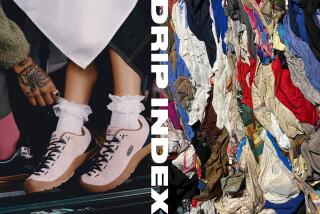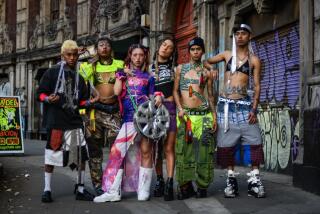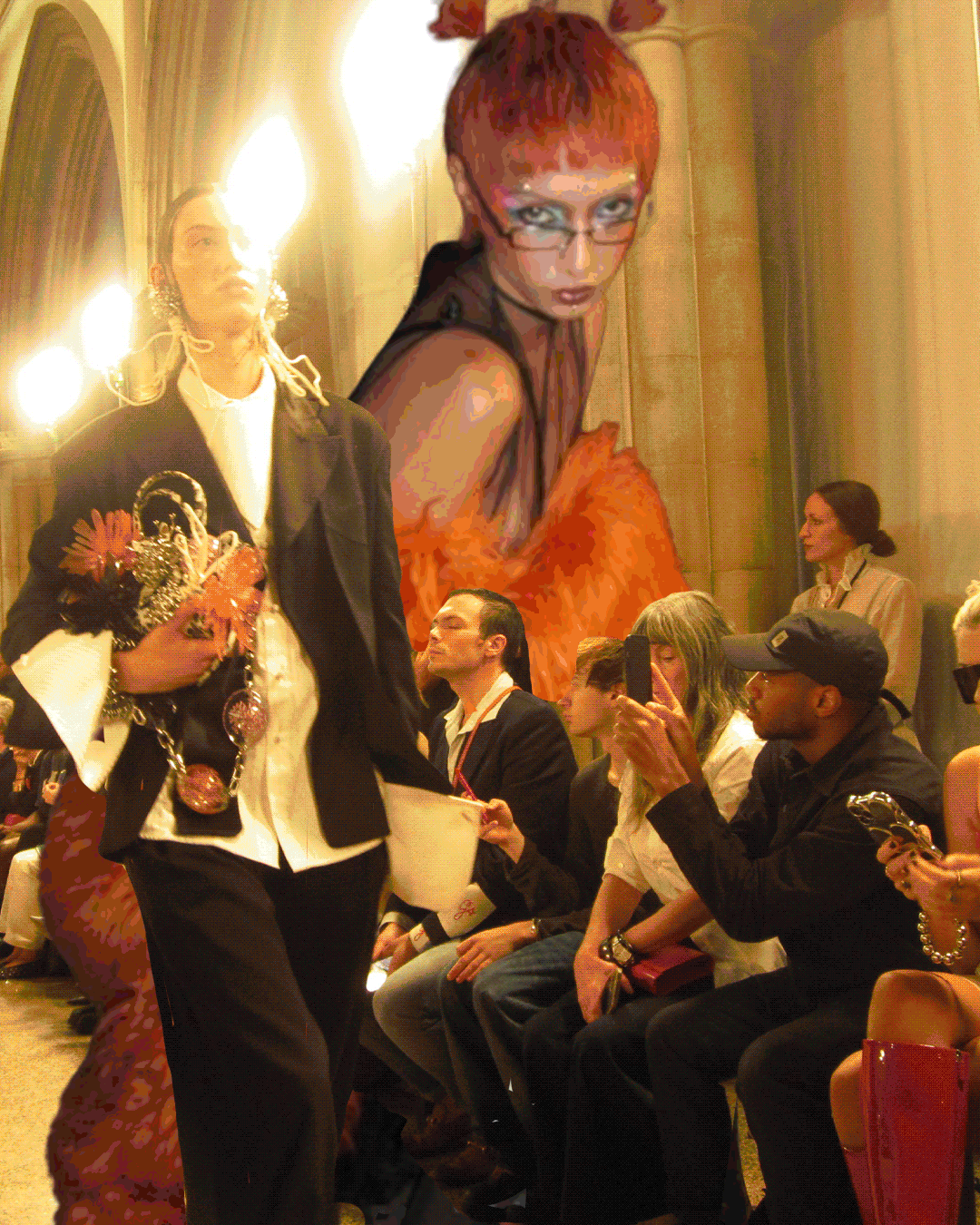Street styles a way of life in Sin City
Say what you want about street fashion — it’s too bright, too busy, too baggy — but just don’t call it a fad.
Even in a city like Las Vegas, which dynamites its history with a peculiar glee, those clothiers and cobblers on the cutting edge of such fashion regard what they hang on racks and place on shelves in their small stores as a lifestyle, a way of being.
“This stuff is always going to be relevant,” says Chris Julian, co-owner, along with Samantha Alfonso, of Fruition, one of Vegas’ leading street-fashion stores, which counts famed rapper-producer Kanye West as a customer.
Fruition is “a platform for us to express our dream, our vision,” Julian says. “As long as I’m wearing clothes, this is going to be about me.”
The key to this game is rarity — finding that old pair of radioactive-green Nike Air Jordans or polo shirts by that once-popular brand that, although still around, has gone out of vogue, like Benetton.
Of course, street fashion didn’t originate in Vegas, but most of the stores that specialize in this style, with its panoply of colors and patterns, are unique to this dusty metropolis. And so are their owners’ stylistic sensibilities.
Just a short walk from the University of Nevada at Las Vegas, Fruition (4139 S. Maryland Parkway, [702] 796-4139) sits anonymously between a swimwear store and a Mediterranean restaurant.
This 2-year-old boutique has green linoleum floors and green walls covered with photos of figures from hip-hop’s days of yore that, coupled with the carefully arranged clothing, give it a museum-like feel.
It’s teeming with history. That T-shirt with a picture of Malcolm X doesn’t just reference the civil rights era; it also references the late ‘80s and early ‘90s, when the revolutionary-minded hip-hop group Public Enemy was railing against racist police officers.
Or that silver-and-black satin jacket with the L.A. Kings logo? It harks back to the days when it was cool for kids to wear hockey apparel, even if they mostly played basketball.
Other items, like creamy ruffled blouses and sundresses fit for a sophisticated beach bunny have their own historical narratives — which Julian and Alfonso are happy to share with you.
Likewise, Dirty Crum, owner of Boro 51 (124 S. 6th St. ), a clean, well-lighted place, is always down to — pardon the pun — talk shop. Whether DJ-ing, producing, promoting shows or performing in them, Crum embraces all things hip-hop.
Boro 51 — the name combines “borough” and the infamous U.S. military base Area 51 — is in the heart of downtown Vegas, and it’s a small, intimate affair.
With little décor other than the vintage sneakers hanging on the walls, an upturned BMX bike near the door and a large ottoman in the center of the floor, the store is sparse in the extreme.
But that doesn’t matter; the clothes do.
Crum says his aesthetic philosophy comprises three elements: apparel (rare and limited), sound (head-bobbing beats) and habitation (sleek, simple furniture). All are on display or played over the speakers here.
There are PRPS jeans, which Crum says are made of cotton from Africa and designed in New York. There are bright pink T-shirts emblazoned with Wesley Snipes from his role as the ruthless drug dealer Nino Brown in 1991’s “New Jack City.” And there is one vintage motorcycle jacket he says only he carries.
Indeed, in the streetwear-fashion world according to Crum, it’s “more like a piece of art” than something to protect you from the cold.
It’s a sign of how highly coveted these items are that Crum could say that with a straight face, and it’s a sign of people’s affluence — or gullibility — that they would pay $650 for one. Being different sometimes costs.
So does buying sneakers. Suite 160 (9350 W. Sahara Ave, No. 160, [702] 562-6136) specializes in the cornerstone of streetwear: freaked-out footwear — especially Nike.
Through a deal set up with the retail colossus, the store gets to pick and choose from a line of vintage-style sneakers. It’s a privilege, says manager Kenn Davenport, that few stores in the nation enjoy.
On Suite 160’s shelves, for example, one can find a pair of brown leather Nike Dunks, the first basketball shoes the company made, Davenport says.
But these have a 21st century twist: The shoes’ seams are laser-printed instead of stitched on — a quality Davenport says justifies their $100 price tag.
Says Davenport of his store (though he could just as easily be speaking for Fruition or Boro 51), “If you don’t want to look like a robot, come see us.”The key to this game is rarity — finding that old pair of radioactive-green Nike Air Jordans or polo shirts by that once-popular brand.
More to Read
Sign up for The Wild
We’ll help you find the best places to hike, bike and run, as well as the perfect silent spots for meditation and yoga.
You may occasionally receive promotional content from the Los Angeles Times.






